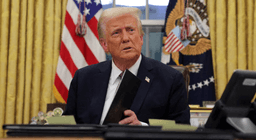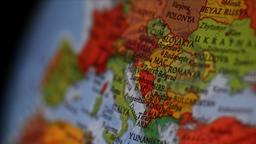It’s Bayram (Eid el Adha) a time for celebration in the Muslim world, when families gather, make an animal sacrifice, and feast together. The Russian philosopher Mikhail Bakthin wrote “the feast has no utilitarian connotation (as has daily rest and relaxation after working hours.) On the contrary, the feast means liberation from all that is utilitarian, practical. It is a temporary transfer to the utopian world.”
Yet I have to say that I don’t feel utopia this year. The smell of the feast is spoiled by the smell of impending calamity. There is now that prickling feeling again. In Ankara at least, it is hard to be optimistic about the immediate future.
In the first stage of this pandemic, we had lockdowns to buy time for our policymakers to gather more information. Fair enough. This created so much economic damage, however, that we have decided that it was the time to get to the second stage. Here, where we need to live with the virus while reopening our economies.
Yet I think we misunderstood the meaning of getting from first to second stage. For some reason, we seem to have thought that the virus would be accommodating while we eased our lockdowns. It simply seemed too unreasonable for it to maintain its initial level of infectiousness when our economies were hurting so badly. Perhaps we have become too accustomed to man-made challenges. Nonetheless, we are now learning that nature does not show remorse. The second stage of a pandemic does not mean a weaker virus. With no vaccine and solid treatment in sight, we are now adjusting for a longer time frame, which means that our economies are becoming increasingly fragile. That’s the essence of that pricking feeling.
This week Jerome Powell of US Federal Reserve warned of a renewed slowdown in the US economy and asked for additional stimulus measures to help American households and business to weather the deepening crisis. This would be in addition to the 32.9 percent annual rate of slowdown in the US economy between April and June, just announced.
Looking for another solid sign? Google with its parent company Alphabet has also announced just this week that it already changed its plans for reopening its offices with the surge in COVID-19 cases. The original plan was to reopen in January 2021. Now, around 200,000 Alphabet employees and contractors will continue working remotely until July 2021. Let that sink in. We were all expecting a deep recession in 2020 and then to get back to work with a slower recovery in 2021. But now it looks like there won’t even be a recovery in 2021.
Even President Trump seems to have to understood the gravity of the situation. For the first time, he has floated the possibility of delaying the November 2020 elections. Note that this is despite the new multi-billion dollar stimulus package that is about to pass the US Congress.
The situation is more serious in developing countries like Turkey, especially those having a structural savings deficits and long-suffering structural reform programs. I am hearing serious talk in international financial circles about the possibility of seeing a first-generation currency crisis in these countries. Remember early first-generation models? It’s about ongoing fiscal deficits, rising debt levels, or falling reserves preceding the collapse of a fixed exchange rate regime. All these concepts became obsolete with the 1997 Asian currency crisis. Floating changed things. But here we are again with the surge in COVID-19 cases. The virus has increased the fiscal burden and the existing vulnerabilities of all become more significant.
A global problem requires a global solution. A global solution can only be implemented through a mechanism for global policy coordination. I wonder why the G20 is still so inactive.
This commentary was published in Hürriyet Daily News on 03.08.2020





